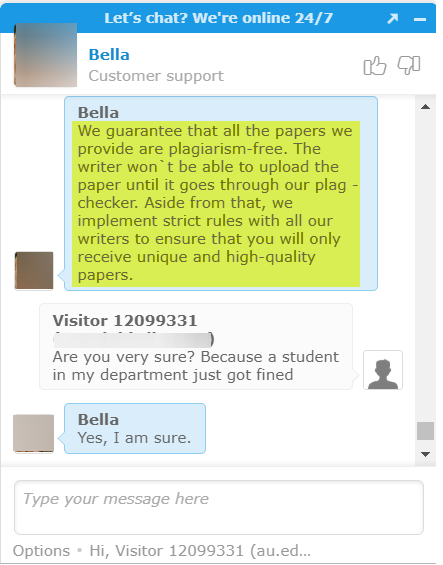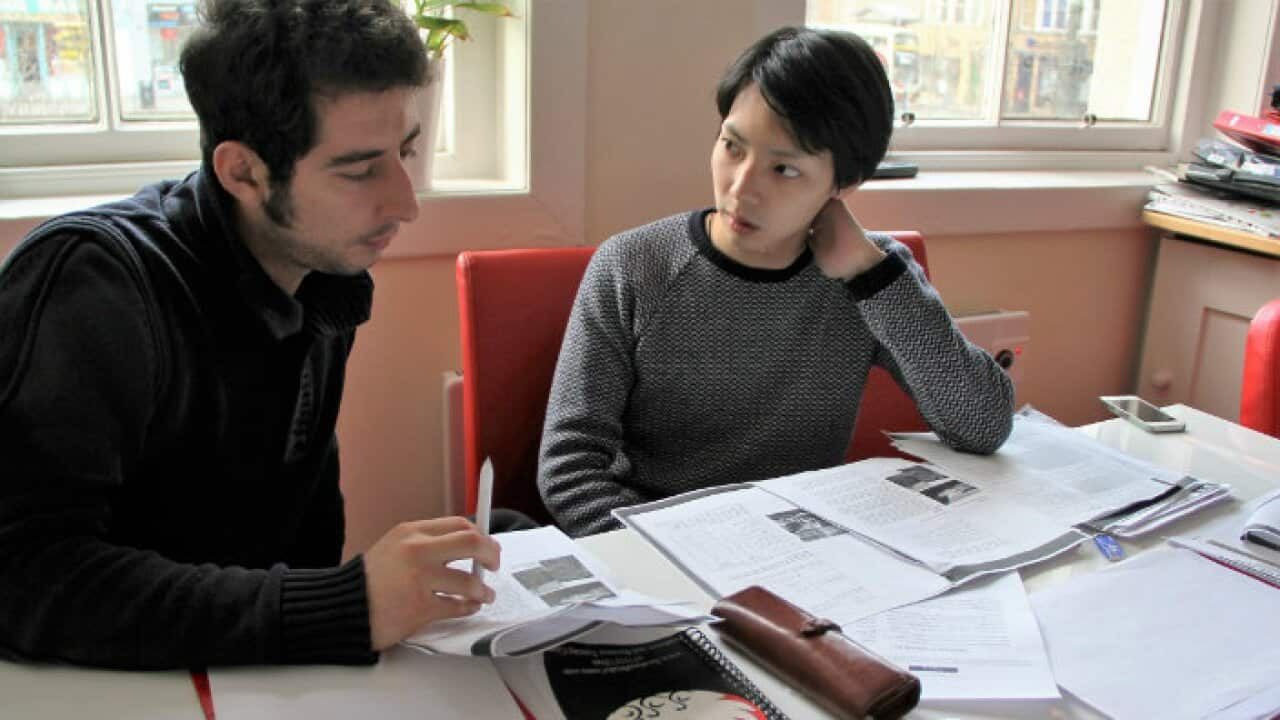An SBS Punjabi investigation has revealed how easy and quick it is to buy an academic assignment online that can go undetected by university professors and hi-tech plagiarism software.
A simple internet search for ‘write my assignment’ produced countless results leading to websites of ‘contract cheating’ service providers, offering ‘plagiarism-free’ essays in exchange for a fee under ‘guaranteed confidentiality.’
Some of the advertisements were tailored to entice Indian students at Australian universities grappling with the ‘English language’, ‘daunting coursework’ and ‘foreign environment’.
An online chat with one such service provider revealed that the cost of the service varied in accordance with the nature of the degree and subject, number of words, assignment deadline and standard of English expected of the student.
Some service providers even allowed their clients to bid for the writers and accordingly pick packages which ranged from 'Premium' to 'Platinum' depending on how much they were ready to shell.

Snapshot of SBS Punjabi's chat with a 'cheating' service provider. Source: SBS

Snapshot of a sample 'order summary' for an essay. Source: SBS
Crackdown on university cheats:
But now things are heating up for these ghostwriting services.
Education Minister Dan Tehan recently announced the government has drafted new legislation targeting these cheats, saying that people or services paid to take exams or write essays for university students will face up to two years in jail and a fine up to $210,000.
"If you write another person’s university essay that’s cheating and you’re ripping off other hard-working students and also undermining our world-class education system,” Mr Tehan said in April.
"We will make contract cheating a crime sending a very clear message that cheats do not prosper under the Morrison Government."
It is important to point out that the proposed reform would only penalise those who are providing the services, and not students caught using a service.

Finance students analyzing report of company as assignment. Source: element envato
A recent survey, conducted by the University of South Australia revealed that international students were more prone to using these services.
The study found that six per cent of students had engaged in some form of cheating — anything from sharing notes and assignments to paying for an essay or getting someone else to write an exam.
Shivi Bhalla, who runs English Wise, a language institute for international students in Sydney, told SBS Punjabi that overseas students, particularly from India, demonstrate proportionately higher cheating behaviours because they have different priorities.
“If you look at the larger picture, most Indian students come to Australia for the sake of permanent residency rather than obtaining a degree,” said Mr Bhalla.
“And secondly, university education in Australia is so expensive that most of their time goes into amassing enough money to pay for their next semester. So where is the time to finish assignments or prepare for exams,” he added.
The other underlying issue is the language challenge, added Mr Bhalla.
“50 to 60 per cent of students who come to us are not very fluent in English and often lack writing skills. And the remaining students who can write well are often not aware of the writing styles or acceptable standards of assignments in Australian universities.”

This image is only for representational purpose. Source: Wikipedia
“But it is important to understand why they choose to cheat or plagiarise,” Mr Goodman said.
“International students are much less likely to put up their hand in the lecture and seek help. So universities need to be on their front foot and must offer accredited in-house free support services to struggling students to nip the problem in the bud.”
Would proposed punitive action against these services solve the problem?
“It’s valuable to send a strong signal to students and these services. But at most, the reforms would make these services illegal, but it is unlikely to prosecute them because they have so many URLs and hideaways and some of them are based overseas,” said Mr Goodman.
“At the same time, it would be terrible if universities saw the passing of the law as a reason for them to stop investing in providing support services to their students. So we need to be careful who to target and how.”
Share



